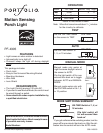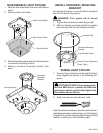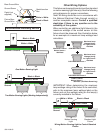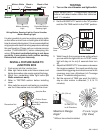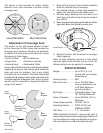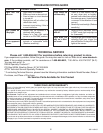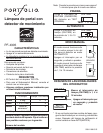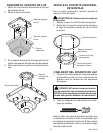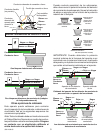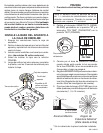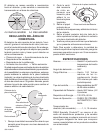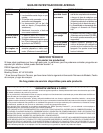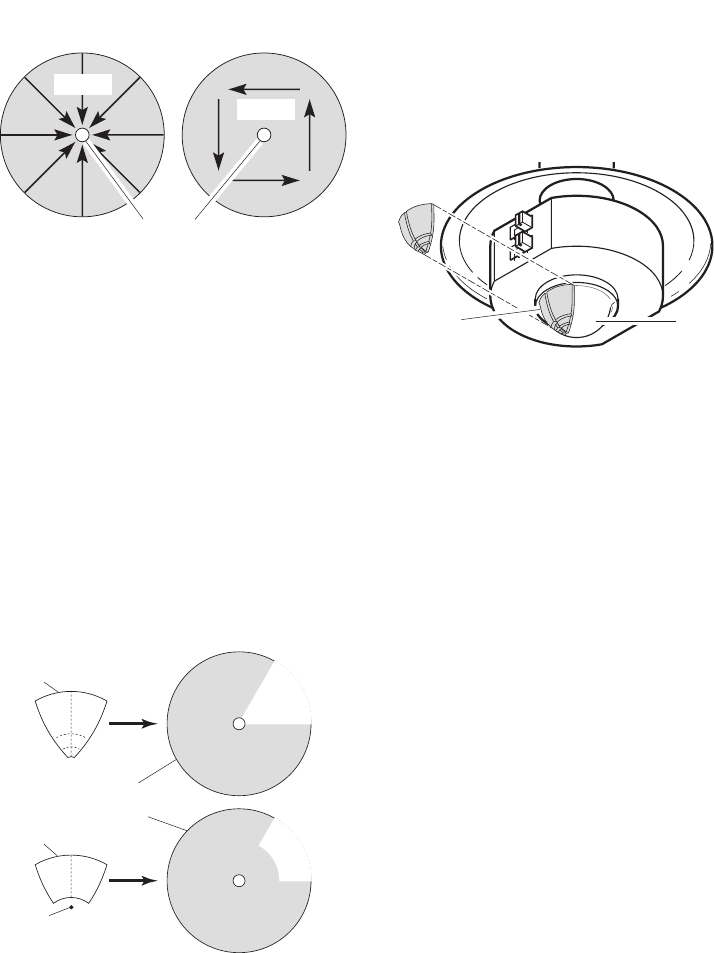
5
598-1168-03
Least Sensitive Most Sensitive
The sensor is less sensitive to motion directly
towards it and more sensitive to motion across
coverage area.
Sensor
Motion
Motion
SPECIFICATIONS
Range ...........................Up to 30 ft. (9.1 m)
[varies with surrounding
temperature].
Sensing Angle ..............360°
Electrical Load ..............Up to 100 Watt Maxi
-
mum Incandescent (Up
to 25 Watt Maximum
each lampholder).
Bulb Type ......................Candelabra Base, Type
“B”, 25 Watt Maximum
Sensor Capacity ...........Up to 500 Watt (4.2 A.)
Maximum
Power Requirements ....120 VAC, 60 Hz
Operating Modes ..........TEST, AUTO, and
MANUAL MODE
ON-Timer ......................1, 5, 10 minutes
DESA Specialty Products™ reserves the right to
discontinue products and to change specifications at
any time without incurring any obligation to incorpo
-
rate new features in products previously sold.
Adjustment of Coverage Area
The sensor on this light fixture detects “motion”
by the movement of heat (body heat) across the
coverage area. However, following are examples
of objects that also produce heat and can cause
the sensor to false trigger:
• Pools of Water • Air Conditioners
• Dryer Vents • Fenced-In Animals
• Heating Vents • Automobile Traffic
If you suspect that a heat source of this type is falsely
triggering the sensor and reducing the sensitivity
does not solve the problem, then a lens shield
(included) can be installed. The plastic lens shield
is divided into 6 sections. Each section will reduce the
coverage angle by 30 degrees. Also, the tip of each
section may be removed to change the effective
range of the sensor.
Area
Blocked
1. Break off the amount of lens shield needed to
block the desired area of coverage.
2. Cut desired amount of foam tape needed to
adhere the lens shield to the sensor lens.
3. Remove paper backing from one side of cut
foam tape and adhere foam tape to inside of
lens shield.
4. Remove paper backing from other side of cut foam
tape and adhere lens shield to sensor lens.
5. Retest to confirm that the sensor is no longer
false triggering.
Note: To help determine amount of lens shield
required, apply small sections one at a time. Ad
-
ditional sections can be applied if necessary.
LO
-
M
- HI
SE
N
S
ITIVITY
O
N-
T
IM
E
TEST
1
5
10
M
I
N
Lens Shield
Sensor
Lens
Area
Blocked
Lens
Shield
Lens
Shield
Portion
Removed
Effective
Coverage Area
(Top View)



